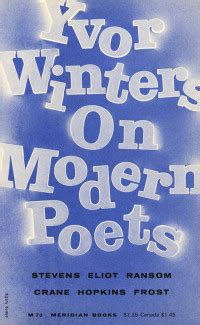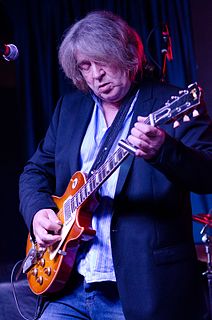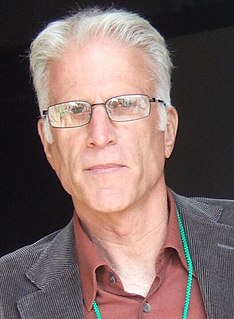A Quote by Yvor Winters
Even though poetry was written for the 'minds ear' as well as the physical ear, the minds ear can be trained only by the other ... which comes back to reading poetry aloud.
Related Quotes
My brother was listening to his transistor radio. He kept switching the earpiece from one ear to the other, which I thought was his idea of a joke. 'You can't do that,' I said. 'You can only hear out of one ear.' 'No, I can hear out of both,' he answered. And that was how I discovered I was deaf in my right ear.
When I was a kid, we went to St. Augustine, Fla., and I was lying on the couch one night with a Q-tip, cleaning my ear out after I'd taken a shower. I hit my arm on something, jabbed the Q-tip through my ear drum, busted my ear drum and couldn't get back in the water the rest of the time we were there.
The phrase "It's absolutely the same with me, I..." seems to be an approving echo, a way of continuing the other's thought, but that is an illusion: in reality it is a brute revolt against a brutal violence, an effort to free our own ear from bondage and to occupy the enemy's ear by force. Because all of man's life among his kind is nothing other than a battle to seize the ear of others.
One of the hardest things for me to do is watch myself. The first time I see it, I am obsessed with my left ear or my right ear or some other physical attribute, or the fact that I'm 60 or whatever shallow ego thought is running through my head. I'm just destroyed that I'm not Cary Grant or whatever.
I didn't ever consider poetry the province exclusively of English and American literature and I discovered a great amount in reading Polish poetry and other Eastern European poetry and reading Russian poetry and reading Latin American and Spanish poetry and I've always found models in those other poetries of poets who could help me on my path.
Prose-it might be speculated-is discourse; poetry ellipsis. Prose is spoken aloud; poetry overheard. The one is presumably articulate and social, a shared language, the voice of "communication"; the other is private, allusive, teasing, sly, idiosyncratic as the spider's delicate web, a kind of witchcraft unfathomable to ordinary minds.






































